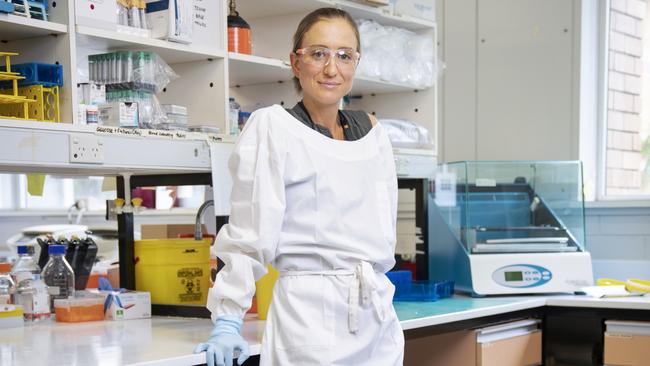Q&A: Dr Kirsty Short, virologist, 34
Are viruses living organisms? And what sort of places are they found? Dr Kirsty Short’s answers will surprise you.

Viruses are not animals, plants, fungi, bacteria or protozoa. What are they? There’s not much to them: a bit of genetic material – the influenza virus, say, has just eight genes – bound up with some proteins. Viruses have a profound effect on our world and on our lives, yet they’re incredibly simplistic.
Scientists can’t agree on whether viruses are actually alive. Where do you stand? Well, they aren’t made up of cells – a defining feature of all living things – and even though they carry genetic information and evolve by natural selection, they can’t replicate outside a host cell; they can only replicate by getting inside a living cell and hijacking its machinery to make copies of the virus itself. Personally, I don’t consider them living organisms. But this is where you get into a philosophical debate about what it means to be “living”.
British mathematician Kit Yates has calculated that all the SARS-CoV-2 (coronavirus) particles circulating in the global human population would fit inside a Coke can. Viruses are tiny, right? That’s part of the reason we didn’t discover them until well into the 20th century. The world went through the flu pandemic of 1918 without even knowing it was caused by a virus. SARS-CoV-2 is 50 nanometres in diameter [there are a million nanometres in 1mm] and we need a highly specialised electron microscope to observe it directly.
Sequencing – which allows you to identify viral genes in a sample of any material – has been a game-changer for virology. And scientists are finding new viruses everywhere they look... Yes, not just in all living things but in crazy places like volcanoes, under Antarctic ice and in the ocean [a litre of seawater typically contains about 10bn viruses]. When I was at uni we were taught that the lungs of healthy people were sterile, but then a US study found that an average person has 174 species of virus in their lungs. Not all viruses cause us harm; some are neutral and some are actually beneficial to us.
There’s even viral DNA in the human genome… Yes, that’s from a subset of viruses called retroviruses. We still don’t fully understand what all these retrovirus genes are doing there; there’s emerging evidence that they’re not functionally silent but actually play a role in regulating our gene expression. Their presence is an indication that we’ve been co-evolving with viruses for as long as humans have been around.
Your specialty is influenza virus, but during the pandemic your team at the University of Queensland has pivoted... We decided early on to go into SARS-CoV-2 research because we had the skills to help understand this emerging respiratory virus. We’re researching some novel therapies. With severe influenza, a lot of the illness isn’t caused by the virus itself but by the body’s out-of-control inflammatory response – and it’s the same with Covid-19, the illness caused by SARS-CoV-2. We’re working on novel “immunomodulatory” therapies – drugs that restore the immune system to a normal setting.
These are vital for our future pandemic preparedness, you reckon. Why? Because they aren’t virus-specific; they’ll work on the severe illness caused by any viral pathogen that emerges in the population. One problem with antiviral drugs is that viruses evolve to become resistant to them; these novel therapeutic drugs sidestep that problem. We should bring them to clinical trial now then stockpile them, so when people are infected in the next pandemic we’ll already have effective drugs on hand. That’s what was missing in this pandemic.
Dr Kirsty Short appears at the World Science Festival Brisbane, March 24-28



